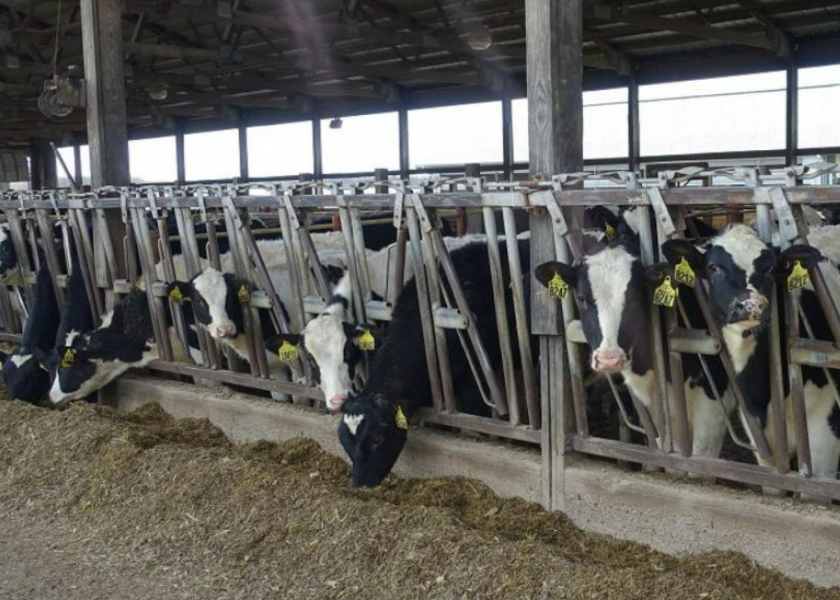Who Should Be Raising Replacement Heifers?

A massive question dairy producers often ask themselves is who should be raising replacement heifers. Should they be raised by the producer, contracted out and customed raised, or should they be purchased?
Dr. Joe Armstrong with the University of Minnesota Dairy Extension says this is a big question, as it dives into what the future of your dairy operation is going to look like.
“This all is very dependent on how calves are taken care of at a young age all the way through until they're milking in your herd,” he shared on a recent episode of The Moos Room podcast.
Armstrong says that many producers raise their own heifers because of control—from genetics to calf care to feeding programs. Another reason for raising your own replacements is that you can give extra hours to on-the-farm employees and save on the cost of custom raising. He says the big question is to determine what it costs to raise your own heifers versus the cost of custom raising or even purchasing springers ready to calve.
“Is there a way to offset the difference if you're not willing or you're not able to raise your own heifers,” he asks. “The quality of the product is one reason you would raise your heifers at home and that is part of the control piece.”
Biosecurity is another factor to take into consideration. Armstrong says you must keep this in mind if you custom raise your heifers out, as the heifers would likely be mixed with animals from other herds.
“There is risk associated with that,” Armstrong points out. “Biosecurity is a great reason to raise your own heifers.”
Custom Raising
Lack of room is another reason producers send their heifers off the farm to be custom-raised out.
“A lot of times the answer is no, they don’t have enough room,” Armstrong shares. “Or at least not yet. Or not right now. And that comes back to all the other things that go with raising heifers, whether it's labor or time.”
He shares that if producers struggle with raising their own heifers—for whatever reasons—they should consider looking into custom raising.
“If you're not doing a good job of it, maybe it is time to consider having someone else do it so you can get a better product in the end,” he suggests, underscoring the fact that labor and time come into consideration and that time and labor resource can be utilized in other ways.
“You cannot afford to spend the time raising your own heifers if you're not going to have the true amount of time you need and the true amount of help you need to dedicate yourself to doing a really good job,” he says.
Another question to contemplate is if you have enough land to raise feed for your onsite replacement heifers.
Do Your Homework
Armstrong says it is vital that producers know their numbers and have a benchmark for what they are striving for, regardless if they raise their own heifers or not. He suggests growers provide data, along with health records.
“I think it's a great idea for growers to provide that as a service. And if you are a dairy, I think it's great to ask for those things,” he says.
If you are considering sending your heifers off to a grower, dive into their biosecurity measures. Armstrong says to ask what steps they are taking to avoid some things, whether that is BVD or Johne’s.
Purchasing Debate
When it comes to purchasing cows, the question is to ask if you are going to buy springers or a milking cow. He shares that from a biosecurity standpoint, there are a couple of advantages of purchasing a pregnant animal.
“If you're buying a pregnant animal, you can test the animal itself that is pregnant for BVD,” he says, although you won’t know if the calf has BVD until it hits the ground.
He says cows that are 60 days fresh are currently going for $2,500.
“That might seem like a lot, but remember you're paying for a low-risk animal that's been through the hardest part of that first 60 days,” he says. “Yes, there is some stress from the change in environment and being in a new place and all of those things, but they are a lower-risk animal, and you didn't have to pay for the cost of raising that animal through that first two years of her life.”
Armstrong says it costs on average $2,000 to raise a heifer calf before she hits the milking string. He says some farms can do that cheaper and some more expensive, but producers must be honest about what the total picture looks like.
“For a lot of dairies, it's very reasonable to consider should I be raising my own or should I take that time and that labor that I'm using on calves and put it towards something else,” he shares.
To listen to The Moos News podcast in its entirety, go to The Moos Room | All Episodes (transistor.fm)







